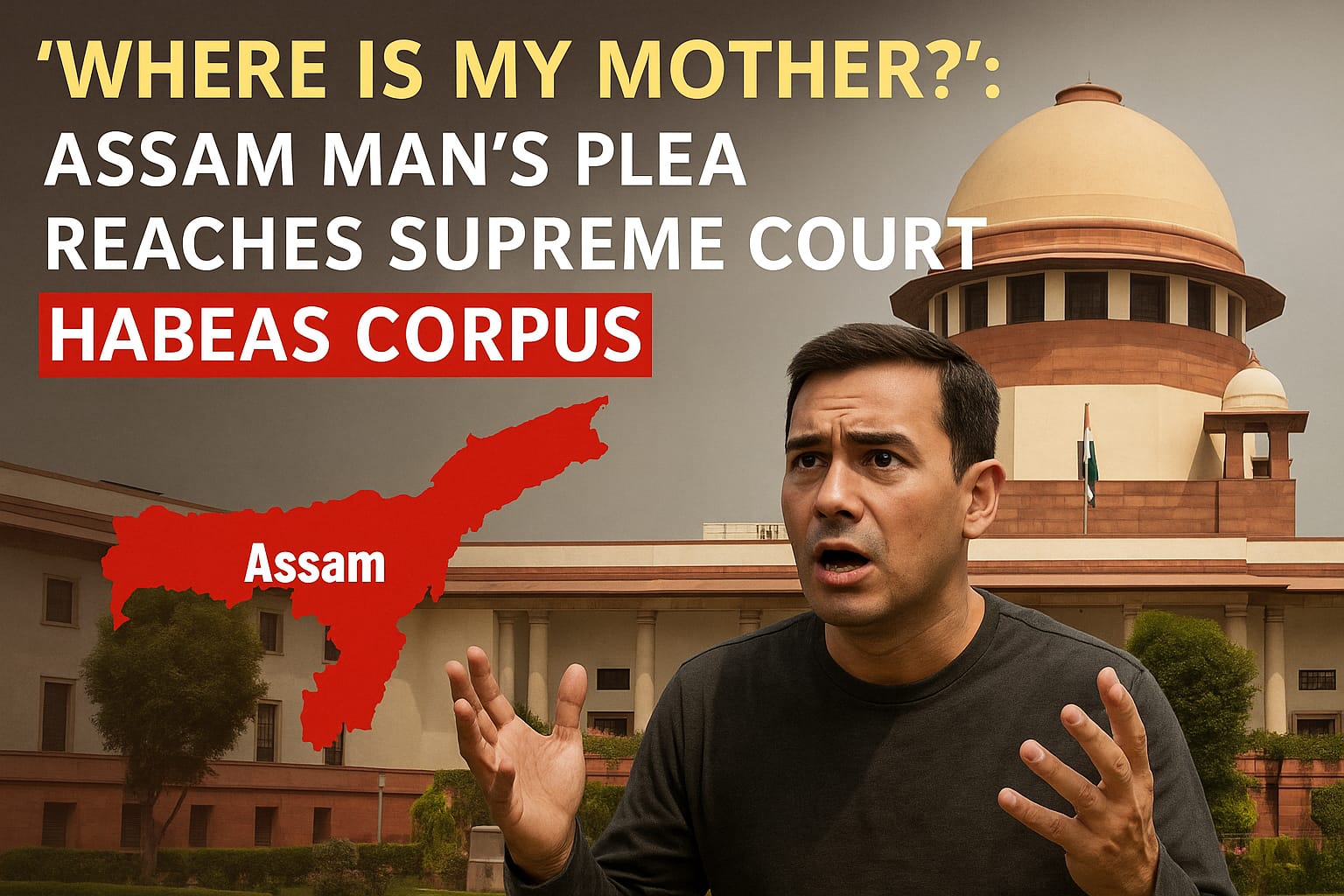Introduction
A man from Assam has approached the Supreme Court of India with a tear-jerking question: “Where is my mother?” This case is based on the basic right to personal liberty. His mother is missing and is presumed to be in illegal detention or custody.He has asked the court to use the constitutional remedy of habeas corpus to bring her to him. This appeal has once again stressed how important the Indian judiciary is for protecting people’s rights, especially when everything else seems to have failed.
What is a Habeas Corpus Petition?
The Latin phrase “Habeas Corpus” means “You may have the body.” A writ is a formal written order from a court that says that someone who has been detained by the government, the police, or even a private person must be brought to court. The goal is to find out if the person is being held legally.
Under the Indian Constitution: • Article 32 gives people the right to go directly to the Supreme Court to protect their basic rights.
• Article 226 gives High Courts the power to issue writs, such as Habeas Corpus, to protect both basic rights and legal rights.
The Essence and Importance of Habeas Corpus
The writ of Habeas Corpus is considered one of the most important constitutional protections against unlawful detention. It serves as:
- A protector of personal liberty.
- A check on arbitrary state action.
- A judicial weapon to ensure that no one is held without legal justification.
In essence, it guarantees that every individual has the right to not be detained without due process, and that their whereabouts must be disclosed if challenged.
Why Habeas Corpus Matters
- Stops making arbitrary arrests: No one should be detained without a good reason.
. - Quick Judicial Remedy: It guarantees prompt action and prompt relief.
- Preserves the Rule of Law: Preserves the equilibrium of power between the people and the state.
- Can Be Used Against Private Detention: It is not limited to government officials; it can be filed against anyone.
In connection with Article 21: Enhances the fundamental rights to life and mobility
Past Judicial Precedents
The Indian judiciary has used habeas corpus in several cases, such as: • Child custody disputes.
• Unlawful detention in an emergency.
• Arrests carried out in compliance with laws governing preventive detention; • Kidnappings or illegal detentions of private individuals.
One of the most well-known cases, ADM Jabalpur v. Shivkant Shukla (1976), dealt with the controversial restriction of habeas corpus during the Emergency. This was later overturned, demonstrating that the right to life and liberty cannot be infringed upon, even during emergencies.
The Assam Case: A Human Tale
This recent petition, which was submitted by a resident of Assam, is a human and emotional appeal in addition to a legal one. The man’s search for his mother serves as a metaphor for the practical effects of fundamental rights. When all other systems are ineffective, his resort to the Supreme Court demonstrates his faith in the legal system.
Conclusion
The Assam Habeas Corpus case serves as a reminder that constitutional remedies are useful tools of justice for the average individual not just theorized ideas. They serve as an example of hope and an opportunity of recovering lost freedom in times of crisis.
The writ of habeas corpus is more than just legislation; it is an expression of the state’s moral responsibility to defend the rights, liberty, protection, and dignity of its residents.
About the Author
Vidhupriya Sharma is a second-year law student a KIIT SCHOOL OF LAW, BHUBANESHWAR.. She is keenly interested in business law, focusing. Beyond the legal realm, Vidhupriya is passionate about corporate Law and complementing her analytical approach to legal studies. Her multidisciplinary interests reflect a commitment to understanding law in a broader social.

